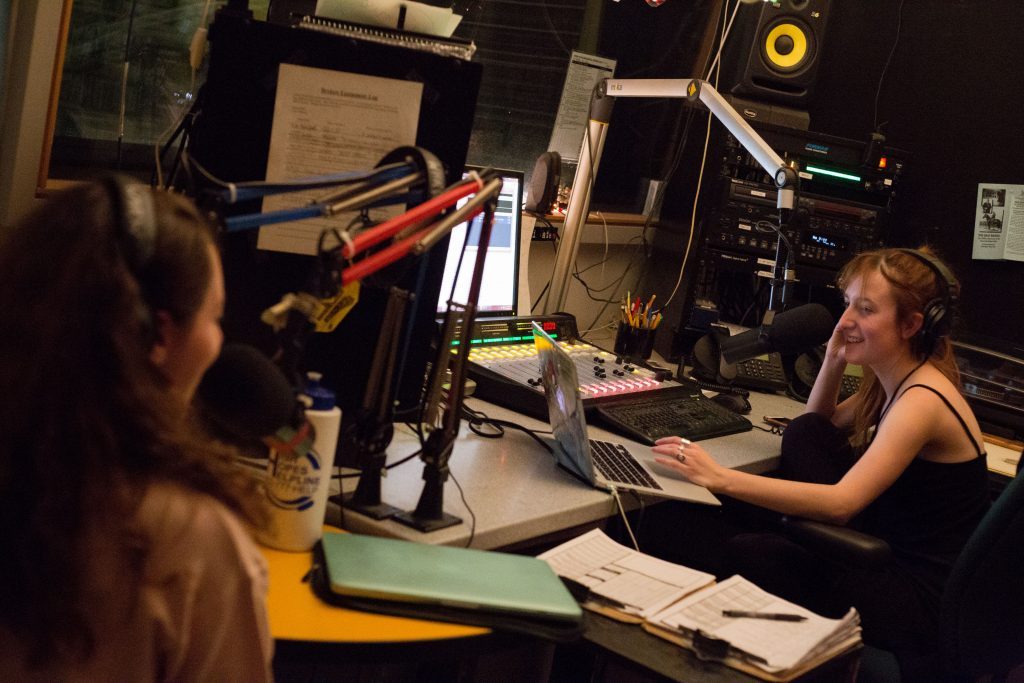WHRW will stream its radio broadcast online for the first time since being told in October that it had violated copyright law. The stream will return to the station’s website on Jan. 1.
The station’s streaming service was taken down on Oct. 31 after receiving notice from SoundExchange, a nonprofit organization that works to protect sound-recording copyright owners, that it was in violation of the performance complement, a copyright law that determines the amount of music by a certain artist that may be played in a given time in an online stream.
Because the station is free-format, station members had been able to play anything they wanted within Federal Communications Commission guidelines. The station had not previously followed the copyright guidelines for online streaming.
The decision to start streaming again was announced in an email to the WHRW general body on Dec. 22. Resuming the streaming service will require the station to pay a minimum annual fee of $500 to SoundExchange.
Jeffrey Goldberg, the general manager of WHRW and a senior majoring in geography, explained that this will be a trial run, with feedback from the WHRW general body taken into account during the spring 2018 semester, when a formal vote will be held. This vote will be non-binding, but will inform a final decision by the WHRW board.
He wrote in the email to station members that these new guidelines will not affect the station’s free-format nature.
“But looking at the whole picture, we will not be implementing any sort of ‘format’ by doing this,” he wrote. “Programming is still up to the DJ, as it always has been.”
In order to comply with the performance complement, DJs are prohibited from streaming more than four songs by the same artist in a three-hour period, and no more than three songs by the same artist may be played consecutively. Because of this, the station will require DJs to publish their full track list after a show, and for the subsequent DJ to check the track list. According to Goldberg’s email, any failure to comply with the performance complement will likely result in the individual DJ being responsible for the fine from SoundExchange.
According to Goldberg, the decision was made by himself, Taylor Mileski, the program director of WHRW and a junior double-majoring in sociology and graphic design, and Anthony Muratore, the technical director of the station and a senior majoring in computer science.
“This is by no means a final decision. We want to test the new policies we would implement should the station decide to continue streaming afterward,” Goldberg wrote in an email to Pipe Dream. “I anticipate this to be the setup for less than a month before a final decision is made prior to regular spring semester programming starting in late January.”
At that point, Goldberg explained, the stationwide vote will be held. The final decision will be made based on the results of that vote, along with an evaluation of the station’s new rules.
“[The board] will base the decision to keep, change, or scrap the new rules based on how easy they are to follow, how dramatically it affects programming, and if there are any better methods than what we came up with,” he wrote.
Immediately after the station suspended streaming, the board hosted a stationwide meeting, moderated by Goldberg along with Student Association (SA) President Jermel McClure, Jr., a senior majoring in political science, and Rebecca Ho, SA vice president for finance and a senior majoring in business administration. The SA board members served as informal advisers to station leadership about communicating with members during the meeting and provided access to a lawyer for advice and answers to specific questions posed by the members at the meeting.
Sophia Cohen, a DJ at the station and a sophomore majoring in English, said she was happy with the decision to resume streaming.
“I definitely think it’s the right thing to do. Without the stream, we lose so many listeners and weaken our listening base considerably. Yes, this decision means we have to adjust the way things have been done slightly, but what’s the point of having completely free-format radio if only people in the Binghamton area are going to hear it?” she said. “Without the stream, I felt like I was broadcasting to no one. The stream legitimizes what we do [as DJs].”
The reintroduction of the streaming will also bring back the archiving function for shows, meaning shows broadcast will once again be simultaneously archived as they are streamed.



